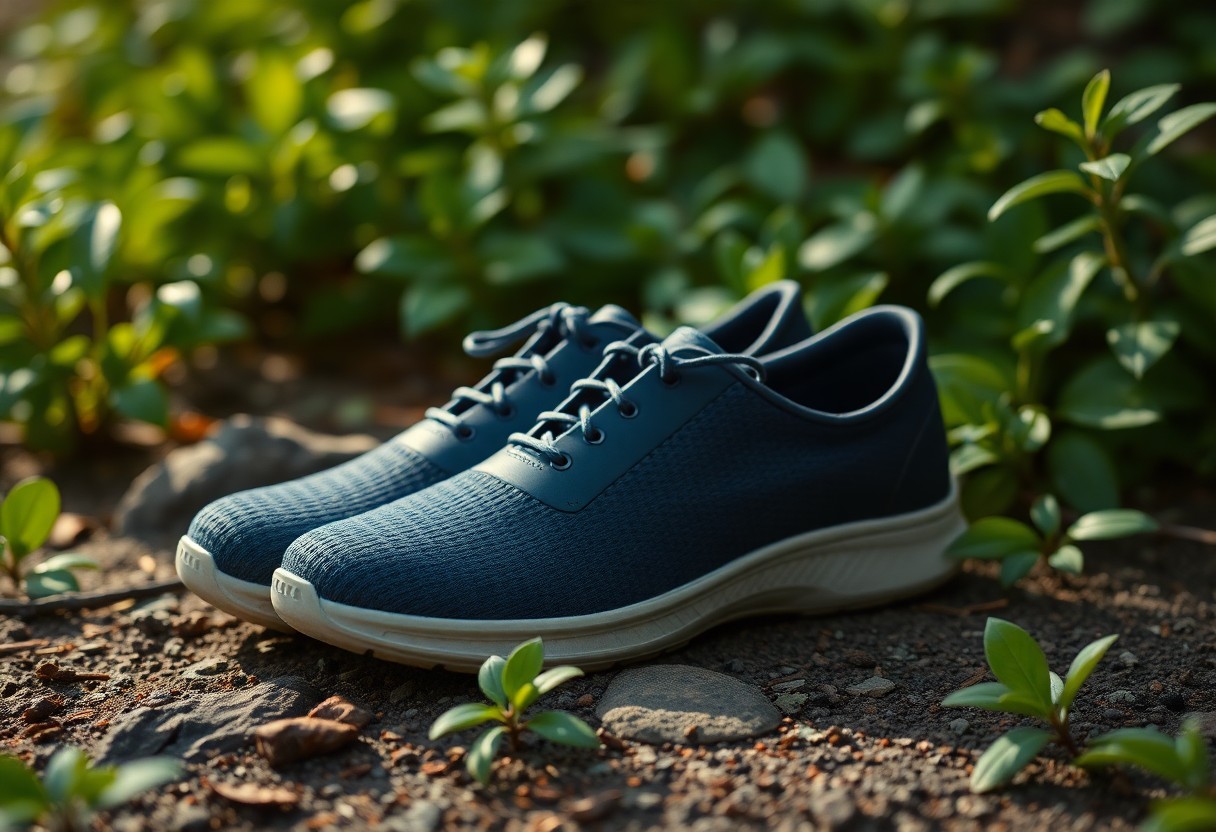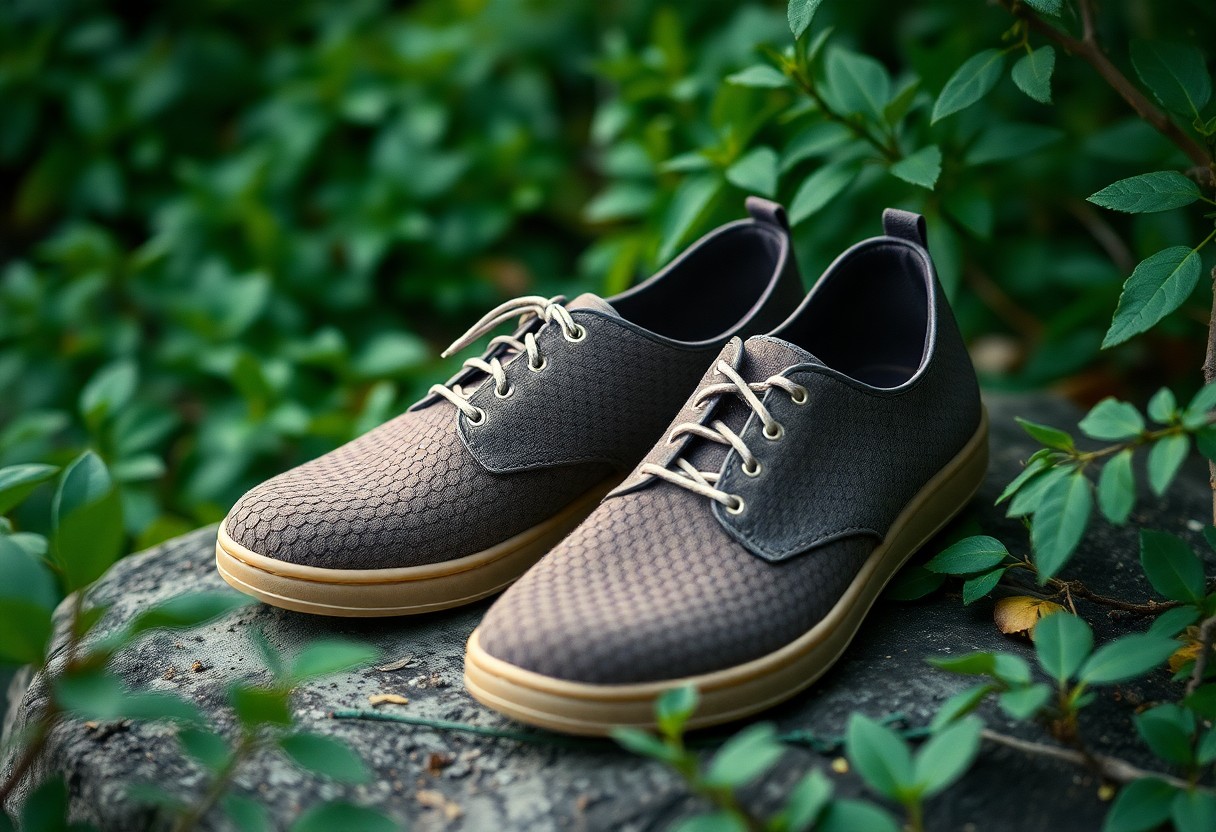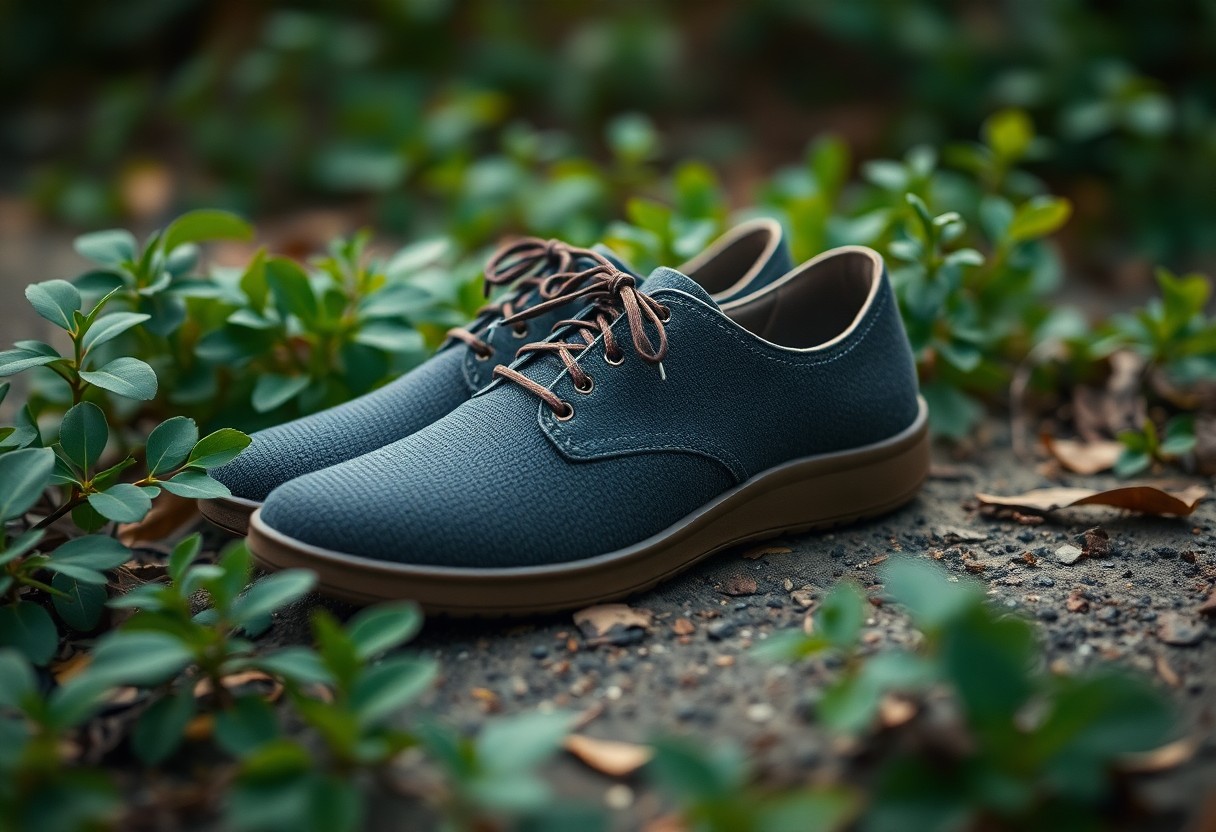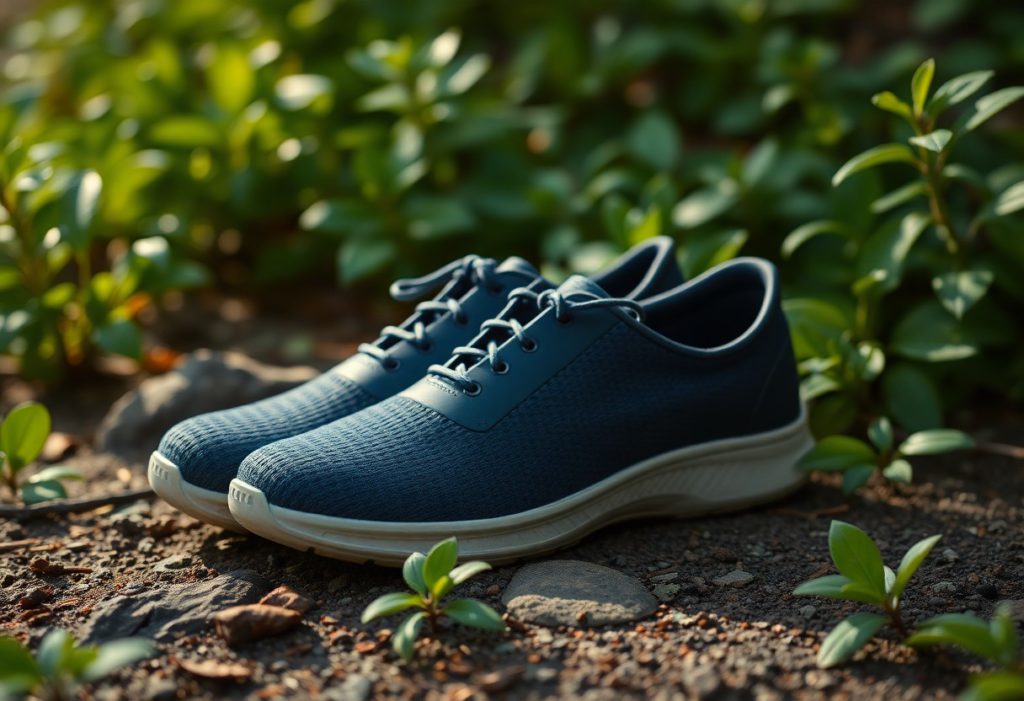As consumers increasingly seek footwear that embodies their personal values—prioritising minimalism, functionality, and environmental consciousness—Xero Shoes has emerged as a prominent player in the market. This brand masterfully blends barefoot flexibility with eco-friendly materials, including soles crafted from recycled sources and dyes derived from plants. This brings forth an important question: how sustainable are these shoes really? Xero Shoes prides itself on features such as carbon-neutral shipping and long-lasting designs that contribute to waste reduction; however, the presence of certain synthetic materials poses some challenges. By choosing Xero Shoes, you are making a conscious decision to support sustainability while being aware of your environmental footprint, even if some compromises exist. For those searching for footwear that highlights sustainable practices, here are essential insights to consider.
Unlock the Advantages of Eco-Friendly Footwear Choices
In contrast to traditional footwear that typically relies on synthetic materials and harmful manufacturing processes, eco-friendly footwear is designed with sustainability at the forefront throughout every phase of production. These innovative shoes incorporate recycled, biodegradable, and plant-derived materials, which significantly decrease waste and carbon emissions. For enthusiasts of barefoot movement, brands like Xero Shoes harmoniously blend this philosophy with minimalist aesthetics, enabling you to tread lightly upon our planet—akin to walking with a lighter footprint, both in a physical and environmental sense.
Diving Deep into the Concept of Eco-Friendly Footwear
At its essence, eco-friendly footwear refers to shoes crafted from sustainable materials such as organic cotton and natural rubber, adhering to ethical manufacturing norms. These shoes consciously sidestep toxic dyes, excessive packaging, and non-recyclable elements, ensuring that your purchasing choices actively contribute to healthier ecosystems and fair labour practices. It is vital to grasp that the considerations extend beyond merely the shoes you wear; they encompass the entire process involved in their production.
The Rising Trend of Minimalist Shoe Designs
In contrast to conventional cushioned footwear, minimalist designs—such as barefoot shoes—have surged in popularity due to their natural feel and ecological advantages. By reducing excess material, these shoes dramatically lower waste and energy consumption, perfectly encapsulating the philosophy of “less is more.” This trend is epitomised by brands like Xero Shoes, which utilise thin, durable soles and lightweight fabrics, effectively curtailing resource consumption. This shift highlights a growing recognition that simpler designs can significantly diminish your carbon footprint without sacrificing performance.
For instance, Xero Shoes harnesses lightweight materials and innovative techniques to produce footwear that not only feels great but also respects the environment. This thoughtful approach resonates with individuals who prioritise sustainability in their lifestyle choices.
The Vital Importance of Sustainable Practices in the Footwear Industry
The manufacturing of footwear substantially contributes to pollution and landfill waste, with billions of pairs discarded each year. Embracing sustainable practices, such as the use of recycled plastics and water-based adhesives, can help alleviate these environmental challenges. By opting for eco-friendly choices, you are endorsing innovative methods that protect ecosystems and minimise harm. Nonetheless, it is essential to recognise that the stakes are considerable: the fast fashion industry's dependence on synthetic materials results in microplastic pollution and resource depletion. In contrast, sustainable brands focus on durability and circularity, ensuring that your footwear does not exacerbate ongoing environmental issues.
Investigating Sustainable Materials Utilised in Xero Shoes
If you are seeking eco-friendly barefoot shoes, Xero Shoes highlights sustainability through the incorporation of recycled PET and hemp, effectively minimising waste and environmental impact. Their unwavering commitment to green alternatives ensures that your footwear aligns with your values—like walking with a lighter footprint in both a literal and environmental context.
Harnessing Eco-Friendly Recycled PET Laces
Sustainable practices can commence on a small scale, and Xero Shoes’ laces are made from 100% recycled PET, which repurposes plastic waste into durable, functional components. By selecting these laces, you assist in diverting plastic from landfills, all while enjoying performance that endures, contributing to a cleaner planet.
Exploring the Advantages of Hemp Uppers
The environmental benefits of Xero Shoes’ hemp uppers are noteworthy. Hemp is a low-water, pesticide-free crop recognised for its potential to regenerate soil health. Its natural breathability and resilience make it an exceptional choice for barefoot shoes, providing comfort without compromising the planet. Choosing hemp supports a brighter future due to its rapid growth and carbon-sequestering properties. In contrast to synthetic fabrics, hemp biodegrades naturally, thereby reducing long-term waste accumulation. Moreover, its antimicrobial characteristics help maintain freshness in your shoes for extended periods.
When comparing hemp with conventional materials:
| Hemp | Requires 50% less water than cotton |
| Synthetics | Derived from fossil fuels, non-biodegradable |
Evaluating the Environmental Impact of Minimalist Design
Xero Shoes’ minimalist designs not only minimise material waste but also significantly reduce your carbon footprint by necessitating fewer resources during production. The streamlined design process results in lower energy consumption in manufacturing, and the absence of superfluous padding or synthetic layers markedly reduces contributions to landfill waste. Choosing minimalist footwear endorses a design philosophy that prioritises efficiency and sustainability, akin to walking with a lighter footprint in both a literal and environmental sense.
Utilising Lightweight Materials for Sustainable Practices
The environmental merits of Xero Shoes are evident through their use of lightweight, low-impact materials, including recycled rubber soles and vegan-friendly fabrics. These selections contribute to easing the strain on natural resources while still delivering exceptional performance. You’ll discover that these materials also help diminish transportation emissions, as lighter shoes necessitate less fossil fuel during shipping, thus contributing to a greener planet.
Ensuring Long-Lasting Durability with Xero Shoes
Beyond their eco-friendly materials, Xero Shoes are designed for longevity, reducing the necessity for frequent replacements. The reinforced stitching and high-quality rubber outsoles are engineered to withstand wear and tear, ensuring that your shoes remain effective for many years. This durability directly correlates with decreased landfill waste, making them a wise investment for sustainable living.
Indeed, Xero Shoes’ durability is further supported by a 5,000-mile sole warranty, illustrating their commitment to reducing environmental impact. Fewer replacements translate to lower resource consumption, and their repairable design allows you to extend your shoes' lifespan even further. For eco-conscious consumers, this blend of resilience and sustainability is truly transformative.
Comprehending Certifications and Ethical Manufacturing Practices
Once again, Xero Shoes exemplifies its commitment to sustainability by adhering to rigorous certifications and ethical practices. Their transparency in sourcing and manufacturing guarantees that your barefoot shoes align with eco-friendly values. From carbon-neutral shipping to recycled materials, they prioritise minimising environmental harm while delivering high-performance footwear. Like walking with a lighter footprint—both literally and environmentally—their endeavours showcase a genuine commitment to planet-friendly practices.
The Importance of Fair Trade Certification
By choosing Fair Trade-certified materials, Xero Shoes actively champions ethical labour conditions and fair wages for workers. Your purchases contribute to empowering communities and advancing social equity. While not all their products bear this certification, their ongoing efforts to enhance supply chain ethics signal significant progress towards a more responsible future.
Identifying PETA-Approved Vegan Certification
Impact matters, and Xero Shoes’ PETA-Approved Vegan certification guarantees that your footwear is 100% free from animal-derived materials. This certification aligns with a cruelty-free lifestyle while also lessening the environmental impact connected with leather production. Their vegan selections illustrate that you can uphold ethical standards without compromising performance.
Moreover, PETA’s approval encompasses not only material sourcing; it also entails a thorough audit of supply chains to ensure that no exploitation of animals occurs. Xero Shoes’ commitment in this domain allows you to trust their claims, avoiding the pitfalls of greenwashing that are prevalent in the industry. For eco-conscious consumers, this certification provides an additional layer of assurance regarding your sustainable choices.

Case Study: Personal Experiences with Sustainable Footwear
Numerous enthusiasts of barefoot shoes have expressed how Xero Shoes resonate with their eco-conscious values, appreciating the brand’s minimalist design and sustainable materials. Whether highlighting waste reduction or opting for vegan-friendly choices, users underscore how these decisions reflect their dedication to a greener lifestyle—like walking with a lighter footprint, both literally and environmentally.
Assessing Lifecycle Impact
Xero Shoes endeavours to minimise environmental harm at every phase of their product lifecycle, from production to eventual disposal. Their durable construction enhances wearability, while recyclable components contribute to reduced landfill contributions. You will find that their lifecycle approach balances performance with planet-friendly practices.
Feedback from Advocates of Sustainability
Insights from eco-conscious wearers reveal strong support for Xero Shoes’ transparency and ethical sourcing. Advocates emphasise the brand’s initiatives, such as the use of recycled materials, which resonate deeply with their individual sustainability objectives.
A closer look at these testimonials indicates that durability and low-carbon manufacturing are frequently highlighted as standout attributes. Nonetheless, some advocates propose that there is room for improvement in end-of-life recycling programmes, encouraging the brand to innovate further in circular practices.

The Influence of Consumer Choices on Sustainability
Establishing sustainable habits begins with you. Your decisions as a consumer shape market demand, influence brands, and drive the transition to eco-friendly practices. By selecting products such as Xero Shoes, you support companies that prioritise minimal waste and ethical sourcing, demonstrating that minor actions can lead to significant change.
Exploring the Environmental Consequences of Purchasing Decisions
Prior to making a purchase, reflect on your environmental footprint. Each transaction sets off ripple effects—from resource extraction to landfill waste. Choosing barefoot shoes made from recycled materials or biodegradable components can considerably reduce your impact, reinforcing the notion of walking with a lighter footprint—both literally and environmentally.
The Necessity of Consumer Education and Awareness
Grasping the lifecycle of your footwear is vital. The more informed you are, the better your choices will be. Brands like Xero Shoes transparently share their processes, assisting you in avoiding greenwashing and aligning with genuine sustainability.
Consumer awareness transcends surface-level labels. Investigating materials, labour conditions, and carbon footprints empowers you to make informed decisions. Ignorance perpetuates unsustainable practices, whilst knowledge fosters accountability and progress in sustainable consumerism.
The Escalating Demand for Sustainable Products
The growing interest in eco-friendly footwear signals a broader cultural shift. As more individuals prioritise sustainability, brands are responding with innovations like plant-based soles and zero-waste packaging, demonstrating that your consumer choices can instigate meaningful change within the industry.
Your behaviours shape market dynamics. Your preference for sustainable options exerts pressure on competitors to adapt or risk obsolescence. Fast fashion and synthetic materials are increasingly being rejected as conscious consumers advocate for alternatives, progressively creating a healthier planet.
The Financial Considerations of Sustainable Footwear Choices
Opting for eco-friendly barefoot shoes, such as those provided by Xero Shoes, reflects an emerging trend towards sustainable consumerism. While these shoes may require a higher initial investment than conventional options, their durability and minimal environmental impact often justify the expenditure. By endorsing brands that prioritise ethical materials and production, you contribute to a circular economy that diminishes waste and promotes fair labour practices. Like walking with a lighter footprint—both literally and environmentally—your purchase aligns with values that benefit both the planet and future generations.
Financial Considerations for Consumers
Among the various factors influencing your decision, the upfront cost of sustainable barefoot shoes may exceed that of mass-produced alternatives. However, their extended lifespan and potential for repair frequently offset this expense over time. Brands like Xero Shoes emphasise quality materials, resulting in fewer replacements and decreased waste. While the initial price tag might give pause, the value-per-wear renders them a wise financial choice for eco-conscious shoppers.
Long-Term Advantages of Investing in Eco-Friendly Products
Beyond reducing your carbon footprint, eco-friendly barefoot shoes also offer health and financial benefits. Their natural designs promote improved posture and foot strength, potentially lowering medical costs linked to inappropriate footwear. By selecting sustainable options, you are also encouraging innovation in green materials, driving transformative change throughout the industry.
For instance, Xero Shoes employs recycled and vegan materials that minimise resource depletion and pollution. Over time, your investment in these products contributes to normalising sustainable practices, encouraging more brands to adopt eco-conscious methods. This ripple effect can yield broader environmental benefits, including reduced landfill waste and diminished carbon emissions.
Current Market Trends and Future Projections
On a global scale, the demand for sustainable footwear is rising, with barefoot shoes capturing the attention of health- and eco-conscious consumers. Brands like Xero Shoes are leading the charge, leveraging biodegradable and recycled materials to satisfy this growing demand. As awareness increases, we can anticipate more competitive pricing, making eco-friendly options accessible to a broader audience.
Trends suggest a shift towards transparency, with consumers demanding detailed insights into ethical sourcing and production practices. This push for accountability is reshaping the industry, even as challenges such as greenwashing persist. By staying informed, you can make choices that align with sustainability goals, ensuring your purchases drive impactful change.
Overcoming Challenges in Sustainable Shoe Production
Despite the rising demand for eco-friendly footwear, creating sustainable barefoot shoes like Xero Shoes involves myriad challenges. The limited availability of certified materials, high production costs, and the need for durable yet biodegradable designs complicate the process. You may wonder if these obstacles compromise sustainability—fortunately, brands dedicated to innovation are actively seeking solutions that ensure your shoes resonate with your values.
Obstacles in Sourcing Sustainable Materials
One of the most significant challenges is sourcing ethically produced, eco-friendly materials. Each component must comply with strict environmental regulations, from recycled rubber soles to plant-based dyes. You will appreciate that Xero Shoes prioritises suppliers who maintain transparent practices; however, scaling these responsibly remains a considerable challenge for the industry.
Striking a Balance Between Cost and Quality
Every sustainable shoe embodies a challenging equation: affordability versus durability. Eco-materials generally incur a higher cost, yet cutting corners can compromise longevity—something you certainly wouldn’t accept in footwear designed for prolonged use. Brands must navigate this balance without shifting the entire burden onto the conscientious consumer.
Challenges arise when budget-friendly alternatives compromise sustainability. For example, cheaper synthetic options might lower prices but undermine biodegradability. Xero Shoes addresses this challenge by optimising production efficiency, illustrating that ethical choices do not always equate to exorbitant prices.
The Industry’s Hesitance to Change
A substantial barrier is the footwear industry’s reluctance to abandon fast-fashion models. Traditional manufacturers often prioritise profit over ecological responsibility, making it challenging for sustainable brands to flourish. Your support for eco-friendly companies like Xero Shoes is crucial for catalysing systemic change.
Progress may seem sluggish due to entrenched practices and lobbying against eco-regulations, but consumer demand—driven by your choices—is propelling brands toward greater transparency. Change is underway, but it requires ongoing advocacy from consumers who prioritise sustainability over convenience.
Innovations in Eco-Friendly Footwear Technology
Stay ahead of the curve with Xero Shoes’ groundbreaking advancements in eco-friendly footwear. Their innovations focus on minimising environmental impact while ensuring exceptional performance, blending comfort with eco-conscious design. From recycled materials to low-waste production techniques, these shoes empower you to walk with a lighter footprint—both literally and environmentally.
Enhancements in Sustainable Materials
Xero Shoes employs recycled polyester, hemp, and plant-based dyes to mitigate the ecological damage associated with traditional textiles and modern eco-friendly alternatives. These materials reduce water consumption and carbon emissions, providing you with durable footwear that does not compromise the planet.
Biodegradable Components for a Sustainable Future
Leading the way in sustainability, Xero Shoes integrates plant-based outsoles and natural rubber, which decompose more quickly than synthetic options. This strategy effectively reduces long-term waste, aligning your footwear choices with the principles of a circular economy.
Innovations in biodegradable technology ensure these components break down efficiently, leaving minimal environmental traces. By opting for shoes featuring these characteristics, you actively contribute to alleviating landfill burdens and mitigating microplastic pollution.
Integrating Technology and Sustainability
At the intersection of innovation and ecology, Xero Shoes employs 3D printing and precision engineering to minimise material waste. Their processes emphasise efficiency, guaranteeing that every step you take is supported by sustainable technology.
Sustainability is not merely a marketing term; it is woven into their operational ethos. From solar-powered factories to carbon-neutral shipping, Xero Shoes exemplifies how high-performance footwear can coexist with environmentally friendly practices, empowering you to create a positive impact with every purchase.
Contrasting Xero Shoes with Competing Brands
When comparing Xero Shoes to other eco-friendly barefoot brands, you will notice notable distinctions in materials, durability, and sustainability approaches. Here is a brief overview:
Comparison of Xero Shoes with Competitors
| Xero Shoes | Utilises recycled materials, provides vegan options, and emphasises minimalism. |
| Competitors (e.g., Vivobarefoot, Merrell) | Offer similar eco-claims but may lack transparency in sourcing and durability. |
Overview of Comparable Eco-Friendly Brands
Upon exploring the market, brands such as Vivobarefoot, Merrell, and Freet prioritise sustainability in their offerings. Here’s a comparison:
Eco-Friendly Barefoot Shoe Brands
| Vivobarefoot | Offers wildhide leather and recycled materials, albeit at a premium price. |
| Merrell | Combines eco-materials with traditional materials, striking a balance between cost and sustainability. |
Evaluating Each Brand's Strengths and Weaknesses
To determine which brand meets your requirements, consider their respective advantages and disadvantages. Xero Shoes excels in affordability and transparency, while Vivobarefoot provides premium materials at a higher cost. Merrell, conversely, may compromise complete sustainability in favour of durability.
In conclusion, each brand presents its own trade-offs. Xero’s dedication to vegan and recycled materials is commendable, but some users have noted thinner soles compared to Vivobarefoot’s sturdier designs. Merrell’s hybrid approach appeals to consumers seeking a middle ground, but might not fully satisfy purists.
Xero Shoes’ Positioning in the Market
While Xero Shoes may lag behind its competitors in brand awareness, it has carved out a niche by balancing eco-consciousness and affordability. Although not as widely recognised as Vivobarefoot, its devoted customer base appreciates its minimalist philosophy and sustainable practices.
Moreover, Xero’s direct-to-consumer model helps maintain competitive pricing, although its limited retail presence may deter some potential customers. Their commitment to a transparent supply chain and carbon-neutral initiatives makes them an attractive option for eco-conscious consumers, even amid ongoing discussions about durability.
Engaging with Communities and Environmental Initiatives
Xero Shoes transcends the conventional role of a footwear brand by actively advocating for eco-conscious values. They initiate programmes that resonate with their sustainability mission, ranging from waste reduction efforts to supporting diverse environmental causes. By prioritising transparency, they invite you to partake in their journey towards a greener future—like walking with a lighter footprint both literally and environmentally.
Xero Shoes’ Participation in Environmental Programmes
While any brand can claim to be sustainable, Xero Shoes substantiates this with concrete actions. They collaborate with initiatives such as 1% for the Planet, donating a portion of their sales to environmental nonprofits. Their commitment to reducing carbon emissions and utilising recycled materials illustrates their serious intention to lessen their ecological impact—allowing you to feel positive about your purchase.
Fostering a Community Focused on Sustainability
Any movement towards eco-friendliness flourishes on shared values, and Xero Shoes nurtures this connection among like-minded individuals. Through social media, events, and educational content, they empower you to make informed choices, transforming customers into advocates for sustainable living.
Additionally, Xero Shoes frequently hosts challenges and workshops that inspire deeper engagement, reinforcing that sustainability is not just a passing trend—it represents a way of life. By cultivating this community, they amplify the impact of every small step taken towards greener practices.
Encouraging Active Participation from Consumers
The brand goes beyond merely advocating for sustainability; it invites you to become part of the solution. From recycling old shoes to sharing tips on waste reduction, Xero Shoes equips you with the necessary tools to effortlessly reduce your environmental footprint.
Environmental responsibility starts with awareness, and Xero Shoes simplifies this journey. Their #XeroImpact campaign encourages you to share your eco-friendly journey, creating a ripple effect that inspires others. When you choose Xero, you are not just purchasing shoes; you are becoming part of a larger movement.

Frequently Asked Questions on Sustainable Footwear Choices
You may find yourself questioning the genuine sustainability of barefoot shoes. Xero Shoes places a significant emphasis on eco-friendly practices, utilising recycled rubber and vegan-friendly options. Their commitment to durability leads to fewer replacements, thus minimising waste. However, it’s crucial to remember that no brand is without flaws—always review their transparency reports for comprehensive impact details.
Common Inquiries Regarding Eco-Friendly Materials
Above all, you might wonder: “Are these materials genuinely sustainable?” Xero Shoes uses plant-based dyes, recycled soles, and breathable meshes. While synthetic blends are present, their focus on low-impact production aids in mitigating carbon footprints—like walking with a lighter footprint, both literally and environmentally.
Dispelling Myths Surrounding Minimalist Shoes
In light of ongoing discussions, you may encounter claims such as “barefoot shoes lack support.” In reality, they are crafted to naturally strengthen your feet. Misconceptions regarding discomfort often stem from inadequate transition periods—your body requires time to adapt to the change.
Thus, minimalist shoes are not just a trend; they represent a healthier alternative when used correctly. Research indicates improved posture and reduced joint stress, but hasty adoption can lead to strain. It is essential to listen to your body and transition gradually.
Recognising the Significance of Product Certifications
When it comes to material safety, seek out certifications such as Bluesign® or OEKO-TEX®, which guarantee the absence of toxic, responsibly sourced materials. Xero Shoes’ adherence to these standards signifies a trustworthy commitment, but it’s prudent to verify claims—greenwashing is widespread.
Therefore, certifications extend beyond mere labels; they serve as your protection against harmful practices. Prioritise brands that undergo third-party audits, as these validate genuine dedication to sustainability, rather than mere marketing hype.
Envisioning the Future of Sustainable Footwear
In the footwear industry, sustainability has evolved from a niche trend into an essential standard. Brands like Xero Shoes are at the forefront of this movement with minimalist designs and eco-friendly materials, demonstrating that comfort and ecological responsibility can coexist. The future promises further innovations in biodegradable soles, recycled fabrics, and carbon-neutral production, all contributing to reducing your environmental impact—like walking with a lighter footprint, both literally and environmentally.
Trends Propelling Eco-Friendly Innovations
To meet the rising demand, brands are embracing circular economy principles, including shoe recycling initiatives and plant-based materials. Advances in 3D knitting and algae-based foams are designed to minimise waste, while transparency in supply chains ensures you are informed about your purchases. These trends reflect a movement towards footwear that is as kind to the Earth as it is to your feet.
Forecasts for the Footwear Industry
In the forthcoming decade, anticipate biodegradable shoes to become commonplace, with brands vying for the lowest carbon footprint. Customisation through AI may help diminish overproduction, and vegan leather alternatives could dominate the marketplace. Your consumer choices will increasingly influence industry standards, encouraging brands to adopt greener practices.
Furthermore, as regulations tighten, companies that fail to embrace sustainable methods may face consumer backlash or legal repercussions. The emergence of carbon labeling will empower you to make informed decisions, turning every purchase into a vote for the planet.
The Role of Consumer Activism in Promoting Sustainability
Among the most potent forces driving change is your voice. Social media campaigns and boycotts have compelled brands to abandon harmful practices, while grassroots movements demand accountability. By supporting ethical brands, you are not merely purchasing shoes; you are nurturing a revolution.
Eco-friendly activism has already led to bans on toxic glues and child labour within supply chains. However, greenwashing remains a concern, making it essential to stay informed. Your diligence guarantees that companies prioritise real impact over mere marketing strategies.
Final Reflections on Sustainable Footwear Choices
In conclusion, Xero Shoes presents a compelling option for eco-conscious consumers seeking barefoot footwear. Their focus on recycled materials, minimal waste, and durable designs aligns with your values of diminishing environmental impact. Like walking with a lighter footprint—both literally and environmentally—their approach seamlessly balances performance with planet-friendly practices. While perfection may be unattainable, Xero Shoes remains committed to sustainability, establishing itself as a formidable contender in the barefoot shoe market. If you seek footwear that complements your active lifestyle while respecting the Earth, these shoes are undoubtedly worth considering.
The Article Eco-Friendly Barefoot Shoes: How Sustainable Are Xero Shoes? appeared first on My Shoes Finder
The Article Sustainable Xero Shoes: Are They Truly Eco-Friendly? Was Found On https://limitsofstrategy.com







